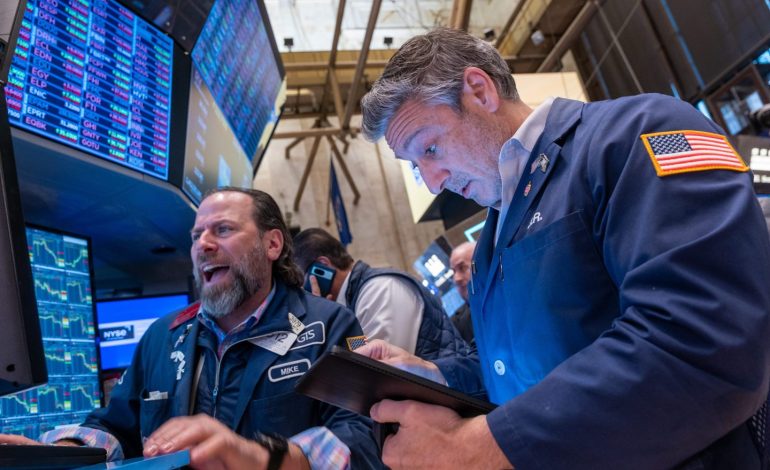US stock futures plummeted on Sunday evening, continuing a sharp market downturn that has erased over $5.4 trillion in market value over the past two days, CNN reports.
Investors are bracing for further losses as the ongoing market sell-off shows little sign of abating, with US stock indices set to open significantly lower on Monday.
Dow futures were down by 1,250 points, or 3.3%, while S&P 500 futures dropped 3.7%, and Nasdaq futures tumbled 4.6%. In Asia, markets mirrored these declines, with Japan’s Nikkei falling 8% at the open. Oil prices also saw significant drops, with US oil falling more than 3% to below $60 a barrel, driven by fears that tariffs could push the global economy into a recession, reducing demand for fuel in sectors like transportation and travel.
Bitcoin was not immune to the market turmoil either, as the cryptocurrency fell 5.6% to $78,736.93, continuing the broader trend of market declines. This sharp sell-off follows one of the worst two-day stretches for US stocks in five years, driven by the implementation of tariffs under President Donald Trump’s trade policies.
The turbulence in the markets is largely attributed to President Trump’s new tariff regime, which has intensified concerns about a potential trade war and the broader economic impact. Following the imposition of new tariffs on various imports, including auto parts, steel, and aluminum, the market is reacting to the uncertainty surrounding future trade relationships, particularly with China and the European Union.
China retaliated strongly, imposing a 34% tariff on all US goods, which raised concerns about escalating tensions and the potential for a global economic slowdown. The uncertainty about the long-term effects of these tariffs has left investors with little clarity, fueling fears of a possible recession.
Market analysts predict that the selling pressure will continue as investors struggle to assess the economic implications of the tariffs. James Demmert, chief investment officer at Main Street Research, stated that the market’s reaction signals a lack of confidence, as concerns about a recession or stalled economic growth grow more pronounced.
The US is set to introduce even higher tariffs on Wednesday, targeting nearly 90 countries with the largest trade imbalances with the US Additionally, further tariffs on a range of products, including lumber, pharmaceuticals, and microchips, are also on the table. The rollouts have sparked backlash from American businesses, investors, and international trade partners.
While President Trump has indicated that he is open to negotiating tariff reductions, his administration has made it clear that tariffs are a central part of its trade strategy. Commerce Secretary Howard Lutnick emphasized that these tariffs are imminent, despite ongoing discussions with foreign leaders and business executives.
Economists are particularly concerned about the potential for a recession. Analysts at JPMorgan estimate that the tariffs could impose an additional $660 billion in taxes on Americans annually, likely raising consumer prices by 2% and contributing to a possible economic downturn in 2025. Similarly, Goldman Sachs has raised the likelihood of a recession occurring within the next 12 months to 35%.










The latest news in your social feeds
Subscribe to our social media platforms to stay tuned